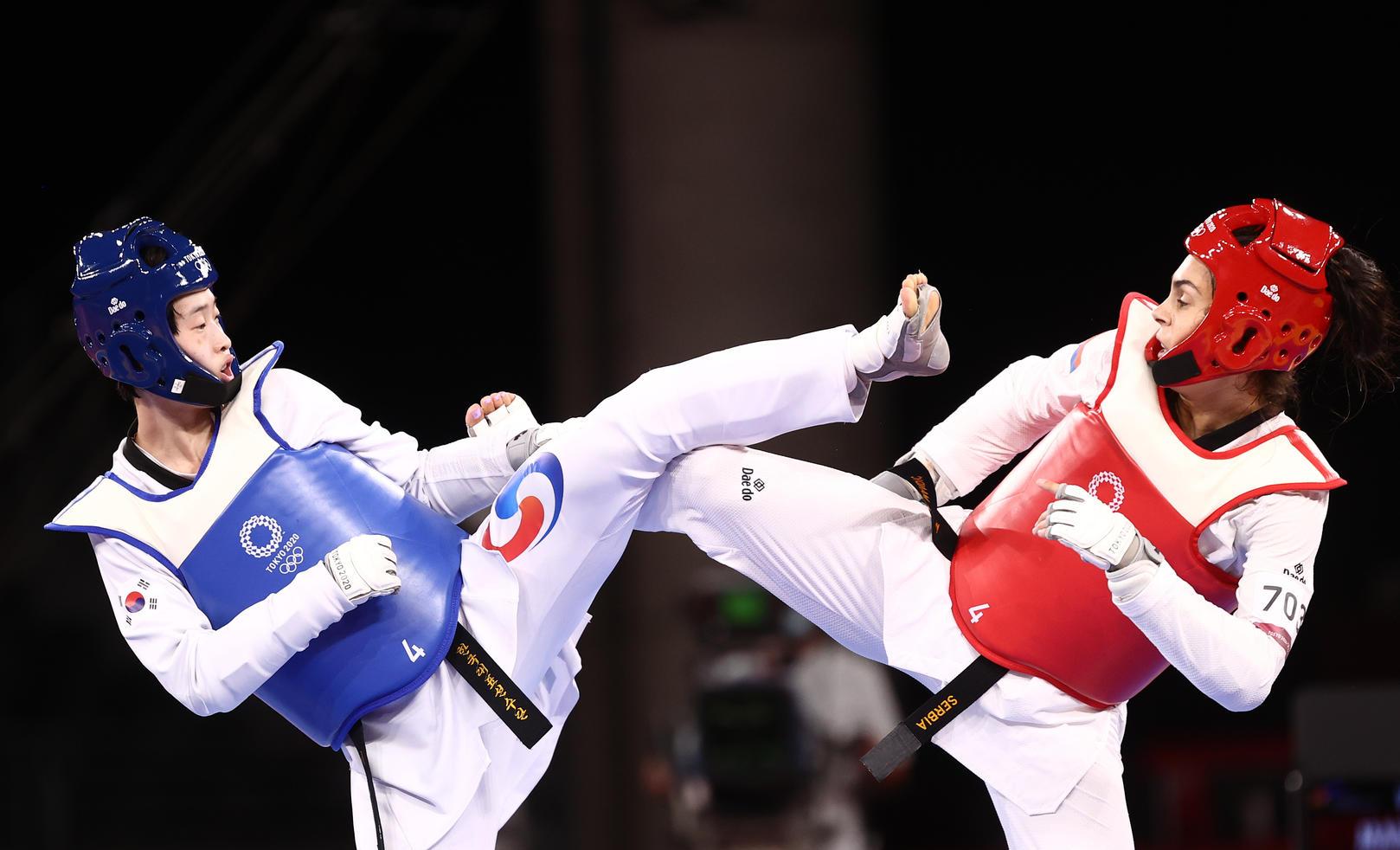According to South Korean media reports, Taekwondo, South Korea's traditional dominant sport, ended all levels of the Tokyo Olympics on July 27, but the South Korean team only won 1 silver medal and 2 bronze medals, and no gold medal was recorded.
Since taekwondo became an official sport at the 2000 Sydney Olympics, the South Korean team has been performing well in the event. Although the London 2012 Olympic Games only won 1 gold and 1 silver, at the 2016 Rio Olympic Games, the South Korean team saved face with a good result of 2 gold and 3 bronze. However, the zero gold medal after 5 years was a big shock to the Korean team. Eight gold medals in the taekwondo event at the Olympic Games were divided among 7 teams, and a total of 21 teams won medals.

South Korean athletes compete in the women's over 67 kg of taekwondo at the Tokyo Olympics. Image according to Visual China
While the globalization of taekwondo is something to be proud of, the South Korean team believes that being seen through by opponents is one of the reasons for the poor performance. Title-winning favourite Zhang Zhun excelled at pulling away to attack, but his opponent's melee strategy caught him off guard. The explosive Li Daxun also disrupted the rhythm due to the opponent's delay in time, and was eventually defeated by the opponent.
It was also pointed out that although the South Korean team exposed its own strengths and weaknesses in international competitions, the overall lack of preparation in terms of tactics and other aspects was the key to the defeat. A team leader of a domestic sports team in South Korea said: "Korean players can only play their strength by pulling away, but many of the matches are close combat. This is incomprehensible. ”
On the contrary, in the judo event, the Japanese team gave full play to the strength of the "birthplace of judo" in this Olympic Games. As of July 31, the Japanese team has won 9 gold medals in all 15 gold medals in judo! Although judo went global earlier than taekwondo, the Japanese team remained the strongest team in the program.
One of the reasons why the Japanese team remained the strongest in judo was the low exposure of Japanese players. The All Japan Judo Federation is adjusting the number of individual players participating in international competitions each year. In this way, the killer skills of the players will not be overexposed, and unnecessary physical exertion can be reduced, and the opportunities can be provided for players without international competition experience.
Kim Tae-gwan, a judo researcher at the Korea Sports Science Research Institute, said: "It is difficult for other teams to imitate the Japanese team. There are a lot of judo athletes of comparable strength in Japan, which may be the advantage of the Japanese team. ”
Coach Song Tae-jin, head coach of the kickboxing team at Kyungichi University, said: "The reserve strength of Korean taekwondo is also very strong, and we should learn from the strategy adopted by some Japanese teams for judo. ”
Red Star News reporter Luo Tian intern Song Sijia
Edit Bao Chengli
(Download Red Star News, there are prizes for the newspaper!) )